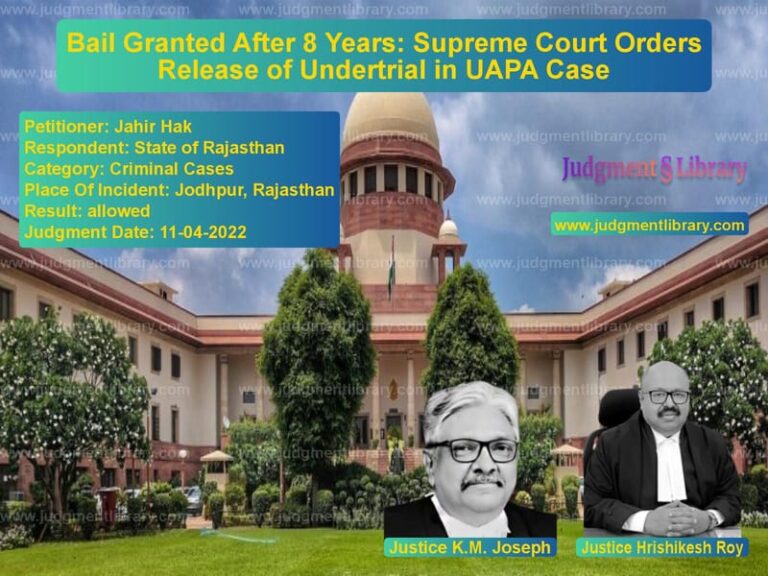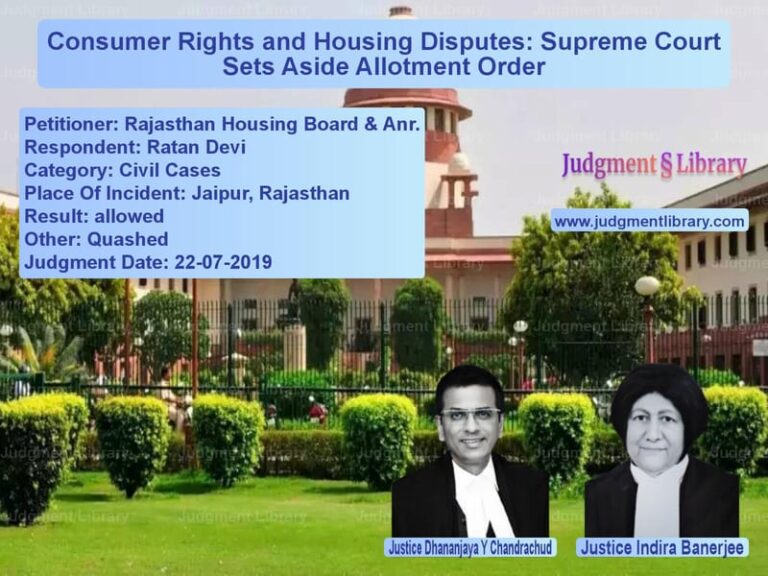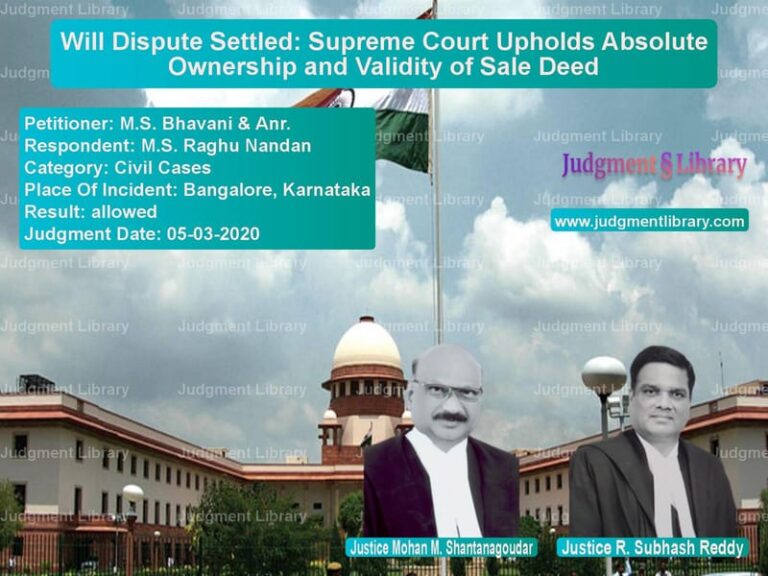Supreme Court Issues Guidelines for Fair and Efficient Criminal Trials in India
The Supreme Court of India, in the case of In Re: To Issue Certain Guidelines Regarding Inadequacies and Deficiencies in Criminal Trials, issued comprehensive guidelines to address systemic inefficiencies in criminal proceedings. This judgment sets a new standard for the fair, uniform, and expeditious conduct of trials across all courts in India.
Background of the Case
This suo motu writ petition under Article 32 of the Constitution was initiated by the Supreme Court during the hearing of a criminal appeal. The Court noticed several inadequacies in how trial courts conducted criminal proceedings, such as:
- Inconsistent presentation of evidence and exhibits.
- Lack of standard practices in witness depositions and document translations.
- Delays in trials due to procedural deficiencies.
The Court sought responses from all High Courts and state governments to create uniform rules for criminal trials, leading to the formation of the Draft Criminal Rules of Practice, 2021.
Key Issues Raised
- How can criminal trials be streamlined to reduce unnecessary delays?
- What uniform procedures should be adopted for presenting evidence?
- What steps can be taken to ensure fairness for both the prosecution and the defense?
Arguments by the Amicus Curiae
- “In many cases, the accused is not given access to all materials collected during the investigation, which violates their right to a fair trial.”
- “The process of marking exhibits and material objects is inconsistent across different courts, leading to confusion during appeals.”
- “Judicial officers should follow a structured approach to recording witness statements and evaluating objections during cross-examination.”
Supreme Court’s Observations and Guidelines
The Supreme Court analyzed various deficiencies and issued the following guidelines:
1. Uniform Standards for Presenting Evidence
- “Each High Court must adopt a standard format for listing prosecution and defense witnesses, exhibits, and material objects.”
- “The accused must be provided with a list of all collected materials, including those not relied upon by the prosecution, under Sections 207 and 208 CrPC.”
2. Recording of Witness Statements
- “Depositions must be recorded in a structured manner, with separate numbering for prosecution witnesses (PW-1, PW-2), defense witnesses (DW-1, DW-2), and court witnesses (CW-1, CW-2).”
- “Trial courts should summarize objections raised during witness depositions and decide on their admissibility at the final judgment stage.”
3. Day-to-Day Trial Scheduling
- “Courts must schedule witness examinations on consecutive days to avoid unnecessary adjournments.”
- “A case management hearing must be held after framing charges to fix dates for key witnesses and expert depositions.”
4. Standardized Use of Exhibits and Material Objects
- “Exhibits should be marked consistently across all courts, with prosecution exhibits labeled as P-1, P-2, and defense exhibits as D-1, D-2.”
- “Material objects should be designated as MO-1, MO-2, with clear descriptions in the trial record.”
5. Revised Rules for Cross-Examination
- “Trial courts must decide on objections during witness examination instead of recording all questions indiscriminately.”
- “Cross-examinations should be conducted efficiently, and irrelevant questions should be disallowed.”
6. Expedited Bail Proceedings
- “Bail applications in non-bailable cases must be disposed of within 3 to 7 days.”
- “If a bail application is not decided within the prescribed period, the judge must provide written reasons.”
Supreme Court’s Judgment
The Supreme Court directed all High Courts and state governments to implement the Draft Criminal Rules of Practice, 2021, within six months. The judgment also mandated:
- High Courts must update their procedural rules to align with the guidelines.
- State governments must amend police manuals to ensure compliance.
- Judges must follow standardized formats for recording trials and issuing judgments.
Key Takeaways from the Judgment
- Uniformity in trials: The new rules will ensure that all courts follow the same procedures for recording evidence and conducting hearings.
- Faster case disposal: The emphasis on day-to-day trials will help reduce case backlogs.
- Greater fairness: By mandating the disclosure of all investigative materials, the judgment ensures a more balanced approach to criminal trials.
- Judicial efficiency: High Courts must ensure that trial courts strictly adhere to these guidelines to improve judicial efficiency.
Conclusion
The Supreme Court’s decision in In Re: To Issue Certain Guidelines Regarding Inadequacies and Deficiencies in Criminal Trials marks a significant step toward streamlining criminal justice procedures in India. The new guidelines are expected to improve transparency, reduce delays, and ensure fair trials for all accused persons. By mandating the use of uniform trial practices, the judgment strengthens the foundation of India’s criminal justice system.
Petitioner Name: Suo Motu Writ (Crl) No. 1 of 2017.Respondent Name: State of Andhra Pradesh & Others.Judgment By: Justice S.A. Bobde, Justice L. Nageswara Rao, Justice S. Ravindra Bhat.Place Of Incident: India.Judgment Date: 20-04-2021.
Don’t miss out on the full details! Download the complete judgment in PDF format below and gain valuable insights instantly!
Download Judgment: suo-motu-writ-(crl)-vs-state-of-andhra-prad-supreme-court-of-india-judgment-dated-20-04-2021.pdf
Directly Download Judgment: Directly download this Judgment
See all petitions in Fraud and Forgery
See all petitions in Contempt Of Court cases
See all petitions in Judgment by S. A. Bobde
See all petitions in Judgment by L. Nageswara Rao
See all petitions in Judgment by S Ravindra Bhat
See all petitions in allowed
See all petitions in supreme court of India judgments April 2021
See all petitions in 2021 judgments
See all posts in Criminal Cases Category
See all allowed petitions in Criminal Cases Category
See all Dismissed petitions in Criminal Cases Category
See all partially allowed petitions in Criminal Cases Category







